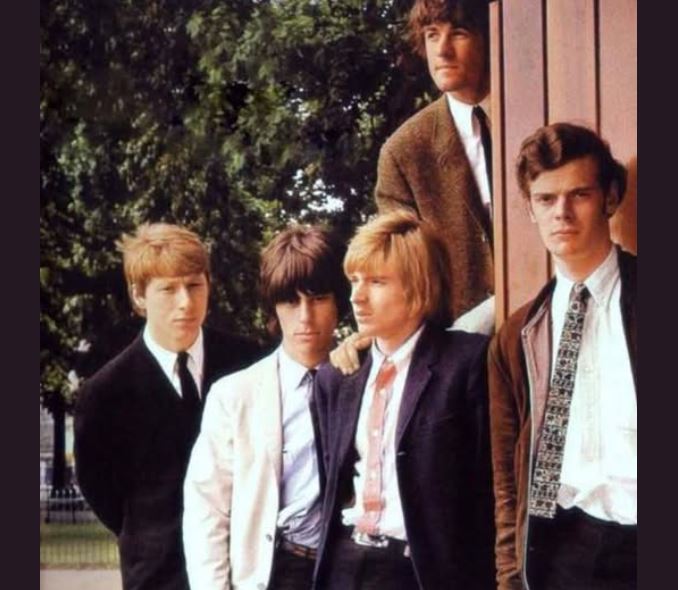
A single guitar riff — raw, buzzing, and evocatively Eastern — reshaped rock music and turned heartbreak into something hauntingly beautiful. The Yardbirds’ iconic track “Heart Full of Soul” emerged during a time of musical experimentation, unsettling listeners in the most captivating way.
The Yardbirds: From Blues to Psychedelia
Formed in London in the early 1960s, The Yardbirds were a band always in motion. Known for launching the careers of Eric Clapton, Jeff Beck, and later Jimmy Page, the group shifted from blues to darker, more experimental sounds when Beck joined. Released in the mid-1960s, Heart Full of Soul became a benchmark for what pop music could achieve — a song of emotional pain that transported listeners to an entirely new sonic world.
Crafting a Psychedelic Sound
Songwriter Graham Gouldman wrote a simple, heartfelt lyric about longing and unrequited love. The band initially considered incorporating a sitar, inspired by Western fascination with Indian music, but could not secure a player. Enter Jeff Beck, who used a fuzz box and precise technique to make his electric guitar mimic the sitar’s ethereal hum. The result: a chilling, otherworldly sound blending rock with exotic textures.
Sparse, Emotional, and Timeless
The track’s music is spare yet relentless. A repeating riff pulses like a heartbeat over a steady rhythm, allowing the guitar and Keith Relf’s thin, weary vocals to paint a deeply personal, intimate atmosphere. The simplicity amplifies the emotional tension, making the song feel both familiar and strangely new.
“I wrote it as a very simple, very direct song about being left with more ache than answers — nothing ornate, just the ache itself — and the band found a way to make it sound otherworldly.”
— Graham Gouldman
Innovation in the Studio
Using a distorted electric guitar to emulate an Eastern instrument was a stroke of genius. Beck’s technique pushed the boundaries of the electric guitar, balancing imitation and invention while maintaining rock energy. Studio experimentation proved that technology could transform not only the sound but also the emotional impact of music.
“I tried to make the guitar sound like a sitar without losing the bite of rock. The fuzz helped; it made the notes sound rough-edged and mysterious.”
— Jeff Beck
A Legacy Beyond Pop
Upon release, the song struck listeners immediately: a pop single that unsettled rather than comforted. For later generations, it stands as a milestone, showing how Western rock could borrow global influences and reinvent them. Its tonal innovation foreshadowed psychedelic currents and inspired future guitarists to explore uncharted sonic territories.
Inside the studio, the decision to substitute guitar for sitar was both practical and visionary. Producers and engineers meticulously crafted the fuzz tone, while the band arranged a minimal yet layered backing — a drum heartbeat, repetitive riff, and vulnerable vocal — producing a sound that still feels startling decades later.
Ultimately, Heart Full of Soul represents a pop record carrying a small, precise shock: sorrow wrapped in a futuristic sound, arriving through an old radio speaker and stopping listeners in their tracks.